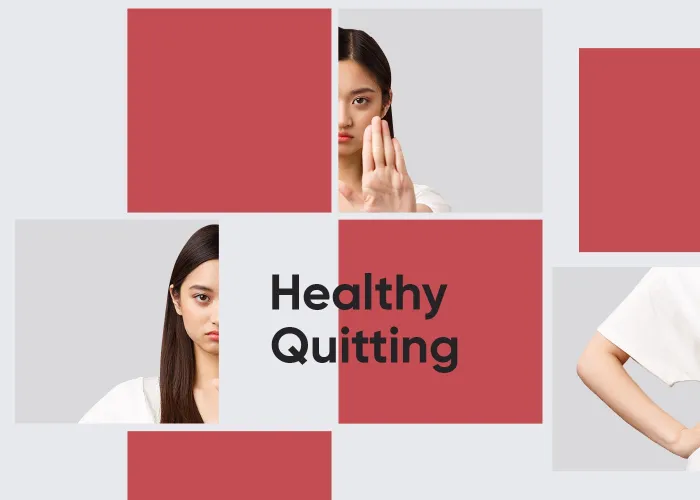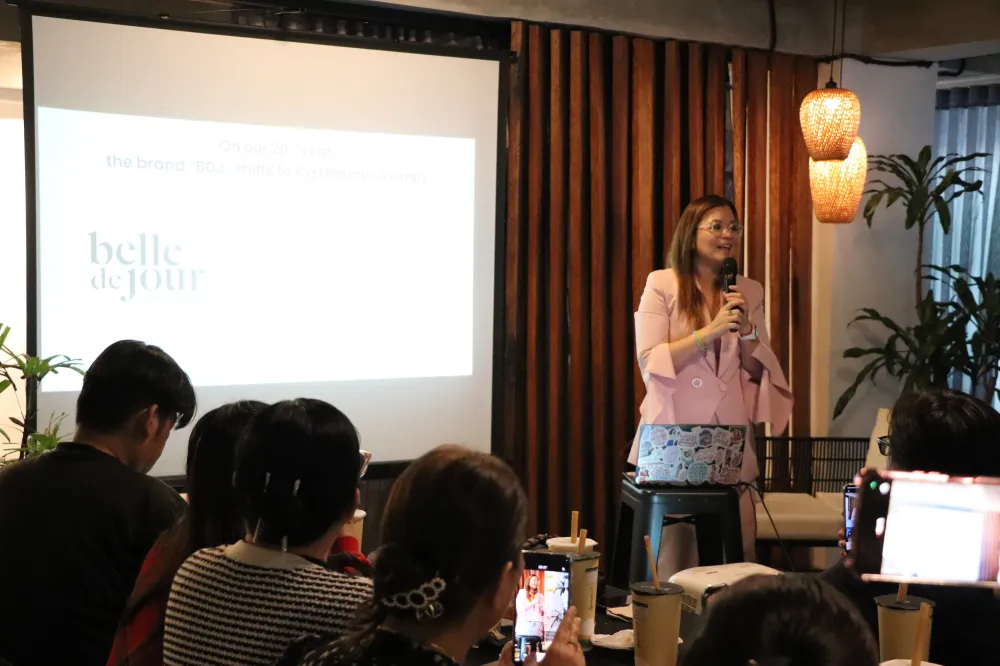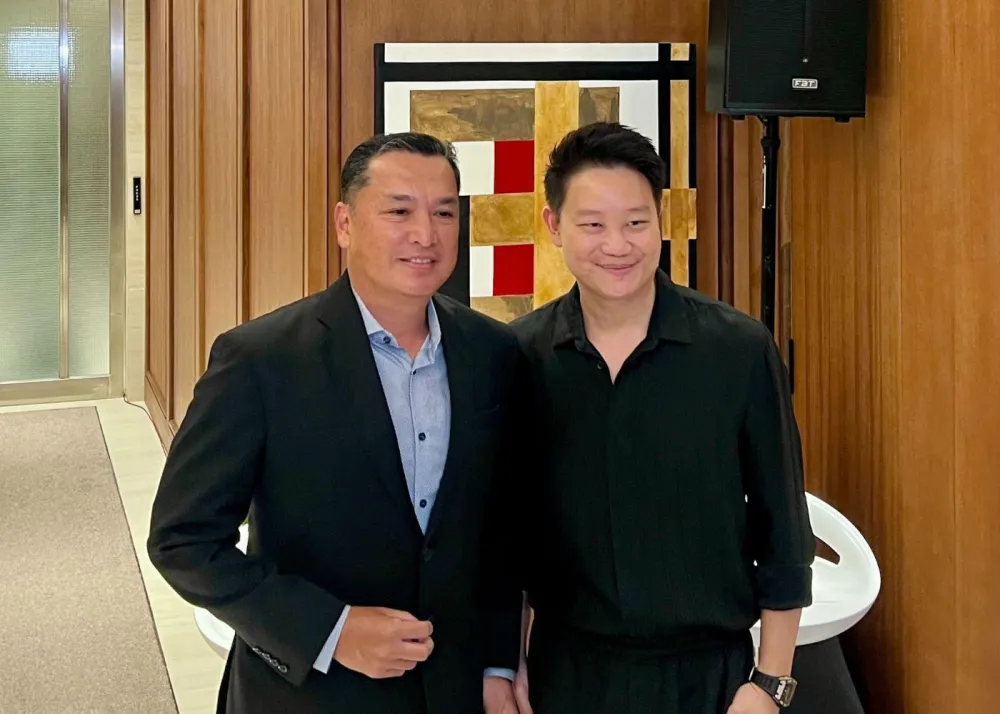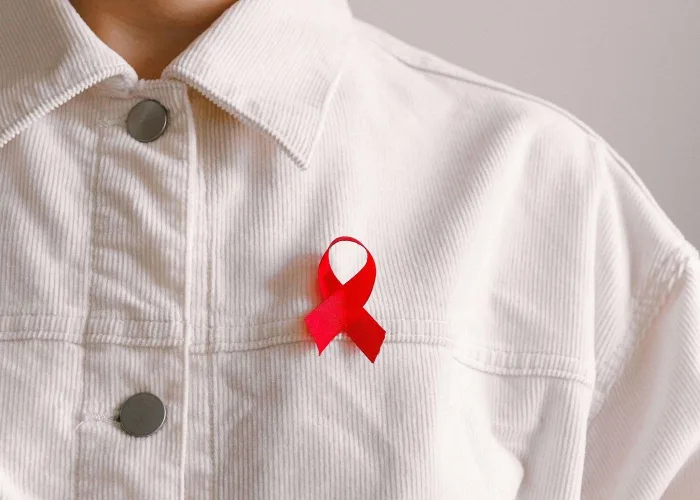Healthy Quitting: These ‘Quitters’ Share Why Giving Up Is Not Always a Bad Thing

In a society obsessed with achieving an end goal, “giving up” appears to be a repugnant concept. And who’s to blame when the older generations have wired us into thinking that life is about making it from Point A to Point B, that your “dream” warrants one step at a time, and that the race towards achieving your goals is a marathon not a sprint. But what if you’re stuck in Point A? What if despite the “never give up” mantra ingrained in your mind by those who finally “made it,” we don’t see each other at the finish line?
Psychologists call this goal disengagement, referred to as “an individual's ability to withdraw effort and psychological commitment from a goal when that goal cannot be achieved.” In some ways an anathema to motivational talks parading perseverance as the ultimate ingredient to success, goal disengagement gives people the power to move on from an unattainable goal and refocus their efforts on something else.
“Winners never quit,” says an adage. But sometimes that’s not always the case. Knowing when to quit may be good for your mental health and save you from emotional turmoil. In this article, we talked to a few people who decided to give up something — be it a job, a passion or hobby, or a relationship — in order to save themselves. They share why quitting, contrary to popular belief, may be a good thing if you know when and how to do it.
bil, 28, employee in a manufacturing company
Sybil restarted her life at 25 after two years in law school. Like her peers, Sybil thought becoming a lawyer was the clear-cut path for her as a Political Science graduate. Nearly three years after quitting law school, she has found a solid support system and a job she loves.
How did you know it was time to quit?
My heart was not in it. Not because law school’s hard, I think that’s a given, but I just didn’t see myself thriving in that career. There was so much I wanted to do outside law school that I didn't pursue. I thought kasi domino effect sya na kapag nag PolSci ka, ganito dapat path mo. Pero hindi naman pala ganun yung case all the time (I thought it’s a domino effect, that when you take PolSci, this is the path for you. Apparently, it’s not always the case). You can carve your own path.
How did you come to terms with quitting and how was your life after quitting on something?
First, of course, I had to tell my parents. They were not happy at first, but I think they have finally accepted it and they see me happy in my career now and that I get to do other stuff I'm passionate about. I also had to draw up a financial plan because restarting your life after two years in law school is not easy. I had to look for resources because I wanted to be financially independent right away.
Why do you think quitting is not always a bad thing?
It's okay to quit when your supposed "goal" is already taking a toll on you emotionally and mentally. It's okay to quit when you're not happy anymore. Like they say, when a door closes, a window opens. Don't mind the people who think you're weak and didn't persevere enough. You're gonna prove them wrong anyway. It's really just a matter of finding what's right for you.
Benny, 26, language assistant at a Manila-based school
Benny was a financial consultant who used to give advice to people on coverage and preparing for financial calamities. He decided to move on from his career, but the lessons he learned from being a consultant continue to influence how he lives.
How did you know it was time to quit?
There was no single precise moment or a particular event that made me decide that financial consulting wasn't the career for me. It was like a breakup in a romantic relationship; the problems piled up, had no real solution, and despite attempts to keep the flame alive, things just didn't work out.
At the time, the pandemic was in full force. Everyone was in a panic, trying to scrimp and save and to cut out anything that was deemed "non-essential." My belief in preparing for financial calamity was solid. But the rejections came. In droves.
I refused to acknowledge that it was due to the current circumstances of the time, that I simply had to do better. Every single day, I was constantly confronted with the fact that most people refused to prepare for a calamity until it was too late. I eventually reached the point where the career no longer sustained me financially, and I no longer cared whether people protect their loved ones from financial calamity before all was lost or not. It was time to go.
How did you come to terms with quitting and how was your life after quitting on something?
I've since become the self-development nut in my many friend groups. I still try to pass along anything valuable I come across to anyone who wants to listen, but I have learned to accept that people will not listen until they are ready.
I've also slowly come to terms with the fact that people are all free to do as they please with their lives, but they must also bear the consequences of the decisions they make every day. The lessons I learned along the way forced me to become more intentional with my life; it is mine to protect, to improve, and no one else is going to do that for me.
Why do you think quitting is not always a bad thing?
I want more people to understand that there is no shame in choosing yourself. People evolve. Priorities change. Something you once thought you wanted so badly may one day no longer sustain you, or make you happy. Most of the time, though, you can't just up and quit. You have to be smart about it. You have to plan out the transition. But you will eventually gravitate towards something better.
Being forced to walk down a path one chose in a time when they were less informed is something I would wish only on the worst of my enemies.
Bell, 28, human resource employee for a Taguig-based company
Bell was once addicted to “gambling,” but it’s not the kind one would expect. Like most of us, the pandemic separated her from the things she loved. She was alone so she turned to streaming apps, which made her spend more money than she thought she should. The relationships she formed, although online, became a part of her life that she understands will drift away.
How did you know it was time to quit?
Streaming apps gave that feel of a social life that the pandemic took away and allowed us to connect with new people. But of course, it was a double-edged sword. As much as it provided that ample amount of happiness and push that I needed to keep on going, it was also harming me in ways I was flat out denying within myself.
Streaming apps had these gifts you can give to any user and among them were gambling gifts, or gifts you can give with a chance of an in-app currency return to give more to your favorite broadcaster. I got a little bit in too deep with that. I convinced myself that I was doing all those (throwing gifts) for myself because I liked these broadcasters, but the reality of it was all of that was just a clever ruse to get us to give money to random people we hardly even knew. And most of them weren’t even celebrities or anything, literally just random people you came across on that app.
I quit my job during the second half of 2021, and that was a big factor. The world was starting to open up again at that time too, so it felt like snapping out of a trance. It got me thinking about what I was doing and the rose-colored glasses I had on when I first discovered the app disappeared.
How did you come to terms with quitting and how was your life after quitting on something?
I felt bad, naturally, at first because it felt like I was ditching my “friends” who I used to talk to every day during the pandemic lockdowns. Over time, it got easier to go on the app. I still visit from time to time just to check on some of them (the broadcasters), but I don’t go all out like I did before. I can honestly say I feel relieved that I got out before it got much worse.
Why do you think quitting is not always a bad thing?
Everything has an end, that’s just how it goes. Quitting should not be viewed as something shameful rather, it should be seen as something brave. To be able to leave is no small feat, and the stigma associating quitting with weakness is something that needs to stop.
Lucille, 29, admin officer at a Marikina institution
Lucille grew up with strict parents. Even so, she wanted to make them proud. But she reached a point when she realized that self-care is better than seeking validation and trying to prove herself to others.
How did you know it was time to quit?
It was during my second year in high school when I participated in an extemporaneous speech contest. I did not let anyone know that I would join, especially my parents because I wanted to surprise them and somehow tell them that I, too, can excel academically like my siblings. I have always tried to make them proud. I had a strict curfew before. I went straight home after school, and I was not allowed to go out at all so joining the contest may have broken that rule since it ended around 7 PM.
I won second place in the contest. I was proudly wearing the medal when I arrived home, but instead of a congratulations, I was greeted with abusive words which as of present still haunts me.
From that point, I thought trying your best and simply trying in life is different because even with good intentions, you'll never know the outcome unless it's finally at the table. I did not actually quit doing my best, I just simply quit trying to prove myself to others.
When you finally realize that it’s not worth doing and giving your all anymore — that no matter how many times you have exerted effort and prioritized other things more than yourself to no avail — it is the best time to quit. And it's completely alright to quit when it's not healthy for you anymore.
How did you come to terms with quitting and how was your life after quitting on something?
I was able to observe, explore, and grow outside the box since I stopped caring about others and started to take care of myself more. I make decisions based on what makes me happy, not because it’s something that will make others notice me. It has been in my mind that quitting isn't a sign of weakness, but more of a sign as a fighter or a brave soul.
Why do you think quitting is not always a bad thing?
A lot of people claim that quitting is only for those who give up in life easily, but it's not how it should be. Quitting is not and will never be the end of one's journey; it’s just the beginning.
The respondents were named anonymously. Interviews were edited for length.
Subscribe to The Beat's newsletter to receive compelling, curated content straight to your inbox! You can also create an account with us for free to start bookmarking articles for later reading.







































































